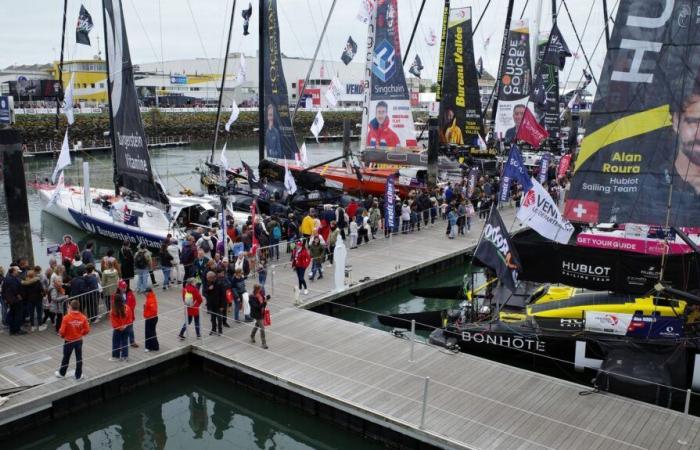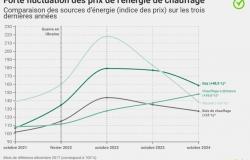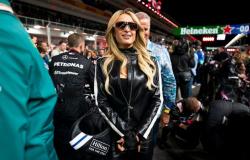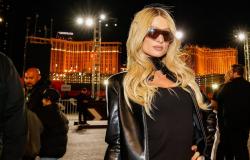“We need to raise awareness, raise awareness, support the preservation of the oceans, which cover more than 70% of the globe.” These words are those of Alain Leboeuf, the president of the Vendée Globe. On February 6, at UNESCO headquarters (Paris), he presented his environmental commitments for the 10th edition, which will leave Les Sables d'Olonne on November 10.
Because a number calls out: 63% of the carbon impacts of the race are due to visitor travel, while 28% comes from accommodation and catering. THE village, which welcomes visitors before the start who come to observe the sailboats on the pontoons, logically concentrates most of the pollution generated by the race, in particular because of the vehicles used to get there.
To reduce this impact, Alain Leboeuf wishes to establish “to rrule of the 5 R's: refuse when possible, reduce, reuse, recycle and return to the earth what is compostable”details the president, who wishes to direct towards the “soft mobility” (no more TGV, TER at five euros) and decarbonize visitor travel (ngreen natural gas stations, hydrogen buses, self-service bicycles).
Sufficient ? “We don't need that to move forward, but it's good to display it and announce it, notes the defending skipper Yannick Bestaven (Maître Coq). We also need the public. So there is ambiguity: how do we bring so many people in while reducing the carbon footprint? This is where there are real challenges to overcome.”
“I want this race to be exemplary, to respect this biodiversity that we talk about so much.”
Alain Leboeuf, president of the Vendée Globeat a press conference
In addition, the Vendée Globe has indicated that it is inserting environmental clauses into its calls for tenders, and has established a partnership with UNESCO. It will allow 25 volunteer skippers to take on board weather-marine measuring instruments in order to “collect and distribute in real time essential data to scientists to enrich global knowledge on climate and the ocean”she specifies.
In racing, the main measure will be the creation of protection zones for cetaceans, often struck by skippers. A measure already implemented in other offshore races. “This is good news: these zones help protect marine wildlife. Over an entire course, it does not complicate the racing strategy”estimates Armel Le Cléac'h (Banque Populaire).
Twenty-six boats will also be equipped with optical cameras to spot “Ofni” (unidentified floating objects), but will not detect submerged cetaceans. “We are capable of integrating these zones of exclusion. As in the Azores archipelago, which has great biodiversity, we try to avoid it as much as possible so as not to disturb it.”says skipper Sébastien Marsset (Foussier).
As for the skippers, the new measures were well received in February, but they did not wait for this edition to preserve their playing field. “These are concrete things and I find that very good. But we could perhaps go even further, talk about our contradictions, perhaps look at ourselves a little more in the face on certain aspectsestimated Clarisse Crémer (L’Occitane en Provence). It's important to go beyond the symbol, to really think about a real carbon footprint, a carbon pack for each of our decisions and commitments.”estimates the 12th of the last edition.
In addition to collisions with cetaceans, the abundance of plastic on beaches and at sea emerges as the main concern, which still finds no large-scale solution. “CIt's inconceivable to see tons of plastic along the beachesYannick Bestanen teased. And again, we have countries that are rather careful. As soon as we travel to developing countries or countries that do not have a recycling and waste treatment system, we realize that it is miserable: this plastic goes back to sea, the fish eat it, and we eat the fish. So let's start by picking up and addressing the big industries that produce all the waste we see on the beaches.”,
“Jean Le Cam said: “Saying too much makes you laugh, saying well makes you shut up.” Even though we do lots of readings, we know that there are lots of things to protect. So let’s act.”
Yannick Bestaven, winner of the 2020 Vendée Globeat franceinfo: sport
The title holder manufactures and uses hydrogenerators, a device that produces electricity thanks to the movement of the boat, and which makes the boat energy self-sufficient. Fabrice Amédéo will for the second time in a row take sensors to measure plastic in the oceans, while Boris Hermann uses CO2 sensors which were notably used in the 6th IPCC report (Intergovernmental Panel on Climate Change).
A commitment now well anchored among the 40 skippers at the start, who remain on the front line to observe the climatic and polluting damage in the world's oceans, and particularly in the South Seas, where few ships venture. “Even if the construction of our boats is not impeccable, I think that preserving our playground is essential. We have the chance to play a natural sport so let's protect it.”concludes Yannick Bestaven.






